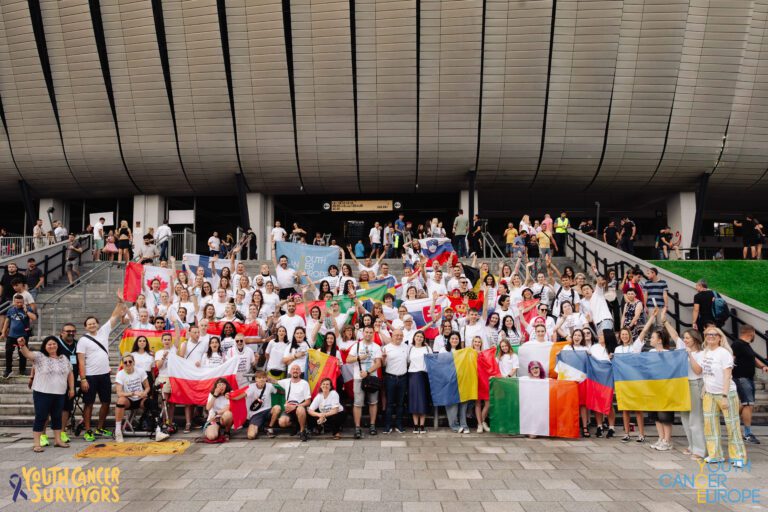The psychosocial approach is a holistic perspective that delves into the combined influence of psychological factors and the surrounding social environment on an individual’s physical and mental well-being. In the context of oncology, psychosocial care plays a crucial role in addressing the diverse range of psychological, behavioral, emotional, and social issues that arise for cancer patients, survivors, and their loved ones.

Understanding Distress in Cancer Patients
Cancer, as a diagnosis, can cause significant distress for patients and their families. This distress varies based on individual and family experiences, influenced by factors such as the type of cancer, the stage of the disease, and the coping mechanisms employed by patients. It’s crucial to recognize and address this distress comprehensively.
Psychological Dimensions of Cancer
There are two primary psychological dimensions of cancer. Firstly, there’s the emotional response that patients and their families have to the diagnosis. This emotional journey is complex, ranging from fear and anxiety to hope and resilience. Secondly, there are the emotional, behavioral, and psychosocial difficulties that influence living with cancer or being a survivor. Psychosocial oncology, as a specialty, focuses on addressing both these dimensions to provide holistic care.
Role of Psychosocial Oncology in Cancer Care
Psychosocial oncology is the specialized field that navigates these intricate dimensions of cancer. It involves a multidisciplinary approach to provide comprehensive support for patients and their families. This specialization extends beyond medical treatment, aiming to improve the overall quality of life for those affected by cancer.
Emotional Responses and Coping Strategies
Understanding and addressing emotional responses is pivotal in the psychosocial approach to cancer care. The emotional well-being of patients directly impacts their ability to cope with the challenges of cancer treatment. Strategies to cope with emotional challenges include counseling, support groups, and tailored interventions based on individual needs.
Behavioral and Psychosocial Difficulties
Living with cancer brings forth various behavioral and psychosocial difficulties. These may include changes in relationships, work-related challenges, and the need to adapt to a new normal. Identifying and addressing these difficulties is essential in providing holistic care to cancer survivors.
Tailored Approaches for Different Cancers
Different types of cancer present unique challenges. Psychosocial support must be customized to meet the specific needs of patients based on the type and stage of cancer. Tailored approaches ensure that individuals receive the most effective support throughout their cancer journey.
Get to know us better
If you are reading this, you are in the right place – we do not care who you are and what you do, press the button and follow discussions live
Join our community
Building Resilience and Collaboration
Coping mechanisms play a vital role in helping cancer patients and their families navigate the emotional and psychosocial challenges. Building resilience is a collaborative effort that involves the patient, their loved ones, and healthcare professionals working together. This collaboration between medical and psychosocial experts enhances the overall care experience.
Addressing Life Stage Challenges
Psychosocial care adapts to the different life stages of cancer patients, from diagnosis to treatment and beyond. Support for survivors extends to managing post-treatment challenges, ensuring a continuum of care that addresses evolving needs.
Impact on Quality of Life
A holistic psychosocial approach positively impacts the quality of life for cancer patients. By addressing emotional, behavioral, and social aspects, patients can experience a more meaningful and fulfilling life during and after cancer treatment.
Community Support and Future Trends
Community support plays a crucial role in psychosocial oncology. Support groups, online communities, and access to resources contribute to the overall well-being of patients and their families. The field of psychosocial oncology is continuously evolving, with advancements in research and innovative approaches shaping the future of cancer care.
Advancements in Psychosocial Oncology
Current developments in psychosocial oncology include interventions such as virtual support platforms, telehealth services, and personalized treatment plans. As the field progresses, the focus is on tailoring interventions to meet the unique needs of each individual, providing more targeted and effective psychosocial support.
Conclusion
In conclusion, the psychosocial approach is indispensable in cancer care, addressing the intricate interplay of psychological factors and the social environment. By recognizing and comprehensively addressing emotional, behavioral, and psychosocial dimensions, psychosocial oncology enhances the overall well-being of cancer patients and their families. Collaborative efforts, tailored interventions, and community support contribute to building resilience and improving the quality of life for those affected by cancer.
FAQs
- Is psychosocial care only for cancer patients or is it applicable to other medical conditions?
- Psychosocial care is applicable to various medical conditions, but its specialization in oncology ensures tailored support for cancer patients.
- How can families support their loved ones emotionally during cancer treatment?
- Families can provide emotional support through open communication, understanding, and participating in psychosocial care activities.
- Are there specific coping mechanisms recommended for cancer survivors?
- Coping mechanisms vary, but common strategies include support groups, counseling, and engaging in activities that bring joy and relaxation.
- What role does the community play in psychosocial oncology?
- Community support, through networks and resources, is crucial for the holistic well-being of cancer patients and their families.
- What are the upcoming trends in psychosocial oncology?
- Future trends include personalized treatment plans, virtual support platforms, and advancements in tailoring interventions to individual needs.

















Comments
Thank you. Comment sent for approval.
Something is wrong, try again later